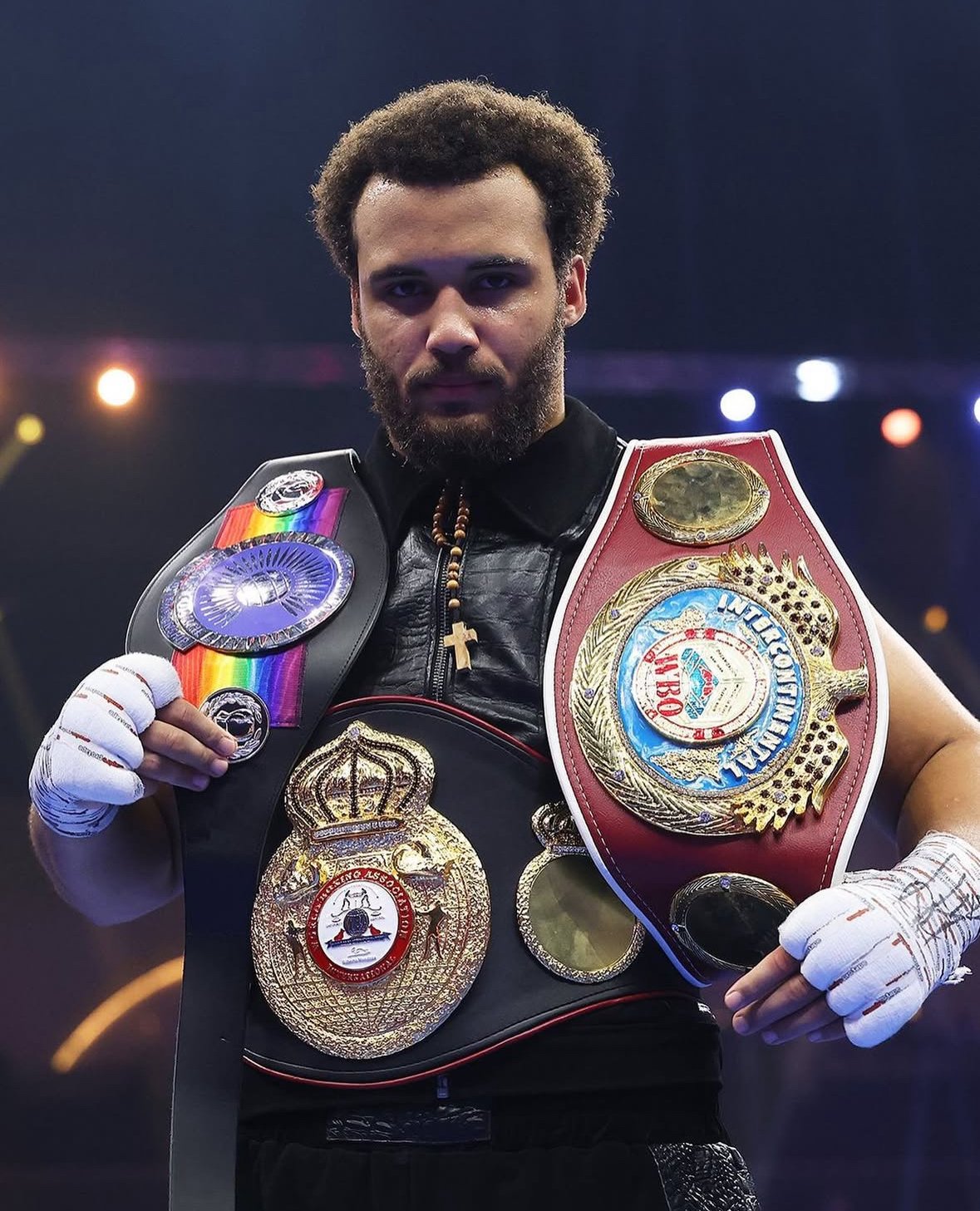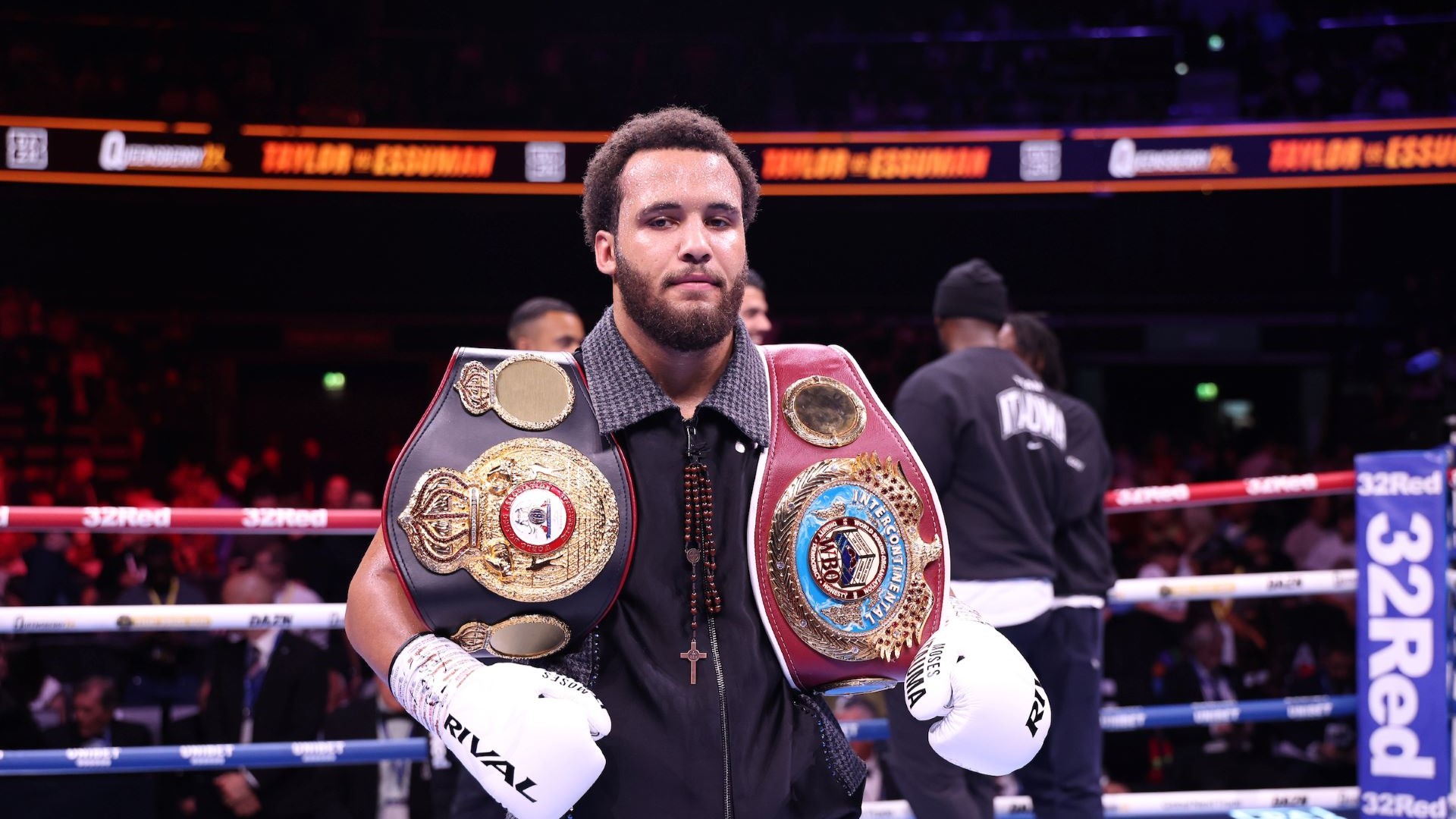➕ Table of Contents
Fans often ask a simple question about the heavyweight phenom Moses Itauma: what’s his religion? The straightforward answer is that he has publicly signaled a Christian faith while keeping the finer details of doctrine, denomination, and church life private. Below is what’s on the record, how it fits the culture of boxing, and why it matters for a rising champion-in-the-making.
The public breadcrumbs
The clearest indicator comes from Itauma himself: after an early professional win he credited God explicitly, using classic Christian language of thanksgiving. He has also been comfortable with interview framing that mentions “faith in God” alongside training-camp storylines. Those are modest but meaningful signals—directly from his voice or with his consent—that place him within broad Christian belief.
Observers have also noted that Itauma sometimes wears Orthodox-style prayer beads—an accessory traditionally used for the Jesus Prayer in Eastern Christianity, where each knot marks a repeated invocation of Christ’s name as a form of contemplative prayer. Interestingly, he has also been seen wearing a Catholic rosary, whose structure and devotional use differ: the rosary is typically used in Western Christianity for meditative repetition of the Hail Mary, Our Father, and other prayers, organized into “decades” reflecting key events in the life of Christ and the Virgin Mary. The presence of both sets of beads suggests a certain openness to, or at least familiarity with, distinct Christian traditions—Eastern and Western—mirroring his own multicultural background and perhaps reflecting a personal, eclectic devotional practice rather than strict denominational boundaries.
None of this spells out a denomination. He hasn’t identified as Catholic, Orthodox, Anglican, Pentecostal, or anything more specific, nor has he made a local congregation part of his public brand. The fairest phrasing, then, is that Itauma is a practicing Christian in a non-sectarian sense.

What we can’t honestly claim
In the absence of explicit statements, it would be speculation to assign Itauma a detailed creed, conversion narrative, or particular church community. That restraint isn’t unusual. Many athletes reference God without turning their feeds into theology blogs. Keeping the sacred close is normal in an era where every association is scrutinized.
Why religion shows up so often in boxing
From Ali to Pacquiao to Fury and Usyk, elite fighters routinely frame their careers within religious language. The ring is a place of radical uncertainty: you can prepare perfectly and still be one punch from disaster. Calling the gap between preparation and outcome “providence” isn’t only rhetoric; it’s a way to make sense of risk. Itauma’s posture—gratitude to God, crediting gifts rather than self-mythologizing—fits that tradition.
A cross-cultural faith story
Itauma’s biography spans cultures where Christianity has distinct expressions—West African and Central European, and then the UK. That mix can foster a portable faith: sincerely held, fluent across styles, and adaptable to life on the road. It doesn’t prove a specific influence, but it does explain why “faith in God” can feel both natural and understated in his public voice.
Comparisons can illuminate—but they can also mislead
Some champions make religious identity a visible part of their brand: Oleksandr Usyk’s Orthodox iconography, Tyson Fury’s public thanksgiving to Jesus Christ, Manny Pacquiao’s evangelical testimony. Itauma’s approach so far is quieter—more allusive than explicit. That’s neither better nor worse; it’s simply the profile of a young athlete still deciding what remains private and what goes on stage.
Other Christian boxers: context and comparisons
Itauma’s gestures toward faith sit within a wide, varied lineage of Christian boxers. The list below isn’t meant as a doctrinal roster—belief is personal, and public expressions vary—but as a map of how Christianity has shown up across eras, weights, and cultures in the sport.
Manny Pacquiao (Philippines)
The eight-division legend underwent a public evangelical conversion in the 2010s, regularly quoting Scripture and crediting God for his career and life change. His faith shaped charitable work and governance during his political career as well.
Oleksandr Usyk (Ukraine)
Visibly Orthodox Christian in practice and symbolism, Usyk often references God’s providence and appears with icons or crosses at pivotal moments. His composure and ritualized gratitude mirror a disciplined spiritual routine.
Tyson Fury (United Kingdom)
Fury frequently thanks “my Lord and Saviour Jesus Christ” in post-fight interviews. His story of recovery from addiction and depression is told through a Christian lens of repentance, grace, and purpose.
Andre Ward (United States)
Undefeated and famously disciplined, Ward’s nickname “S.O.G.” (Son of God) signaled his Christian identity. He emphasized stewardship of talent, family stability, and keeping the sport in proper perspective.
Evander Holyfield (United States)
Holyfield framed his career around prayer and perseverance, often speaking about character formation, sexual self-discipline, and giving thanks to God both in victory and defeat.
George Foreman (United States)
After an intense religious experience in the late 1970s, Foreman became a pastor. His comeback in the 1990s was narrated as a second vocation enabled by faith, patience, and perspective.
Anthony Joshua (United Kingdom)
Joshua often references God and gratitude in a non-denominational register—less overtly confessional than some peers, but consistent in attributing strength and opportunity to God.
Deontay Wilder (United States)
Wilder’s public language blends destiny and faith in God’s plan, using prayerful tones when discussing his daughter’s health journey and his purpose in the sport.
Vasiliy Lomachenko (Ukraine)
An Orthodox Christian background is visible in his iconography and gestures. His focus on humility and craft often comes framed as stewardship of God-given ability.
Canelo Álvarez (Mexico)
Canelo has expressed Catholic identity culturally and in moments of thanksgiving, though—like Joshua—he tends to keep doctrine private and his faith understated in the day-to-day media cycle.
What these examples show is range. Some fighters make their faith an explicit brand element (Ward, Fury, Pacquiao). Others keep it in the background but reach for God-language when stakes are highest (Joshua, Canelo). Some embody a particular tradition’s look and feel (Usyk, Lomachenko); others speak in broadly evangelical terms common in American sports (Holyfield, Wilder). In every case, the practical themes are similar: gratitude, restraint, accountability, and a way to metabolize pressure without losing the plot.
Why this matters for Itauma: the path he seems to be choosing—clear thanksgiving to God without heavy denominational labeling—is a well-trodden middle lane. It allows him to acknowledge faith publicly while protecting the privacy of worship and family life. For a 20-something prospect navigating hype, that balance is often the healthiest one.
So—what’s the headline?
Based on his own words and presentation, the most accurate summary is: Moses Itauma is a practicing Christian in a broad, non-sectarian sense. He thanks God publicly and lets that belief shape how he talks about pressure and success. He has not disclosed a specific denomination, and anything beyond that would be guesswork. As his career scales up, he may share more. Until then, the evidence points to a coherent, modest story: a gifted heavyweight who treats talent as responsibility and gratitude as posture.
Note on sources: This article relies on publicly available interviews, athlete statements, and well-known career narratives. Where doctrinal detail is absent, the text avoids speculation and focuses on on-record language of thanksgiving and faith commonly used by the athletes mentioned.

 DE
DE  RU
RU  UK
UK 